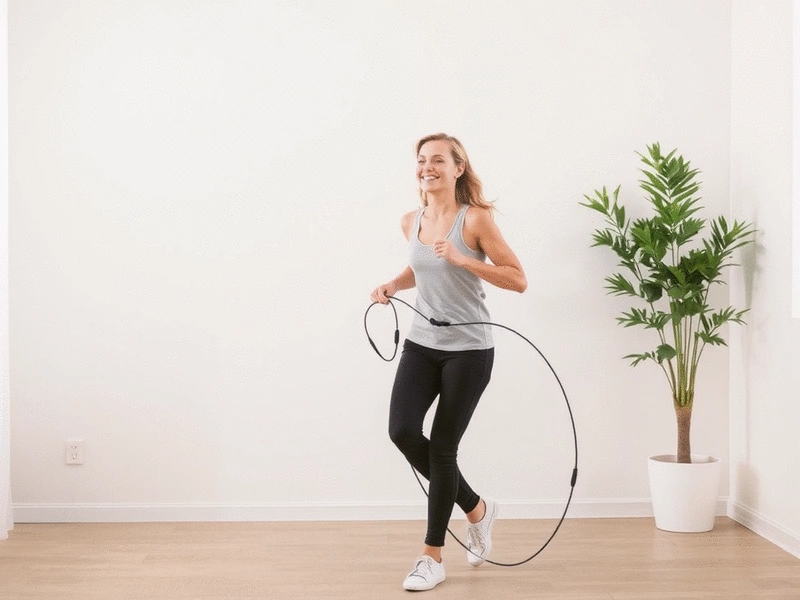Constipation: Causes & Impact
- Poor diet low in fiber
- Inadequate hydration
- Lack of physical activity
- Medications & health conditions
Have you ever considered how your daily activities could influence your digestive health? The surprising connection between cardio exercise and constipation relief could change your perspective on physical activity. Let's explore how moving your body can lead to a healthier gut!
Understanding how physical activity, particularly cardio exercise, influences digestive health and alleviates constipation.
Constipation can feel like a heavy burden, and understanding its roots is essential for finding relief. So, what exactly is constipation and why does it occur? It’s primarily defined by infrequent bowel movements or difficulty passing stool. Many factors contribute to this uncomfortable condition, including diet, hydration, and lack of physical activity. In fact, you may be surprised to learn that regular exercise—especially cardiovascular exercise—can play a significant role in easing constipation!
When we think about digestive health, we often overlook the impact of our lifestyle choices. Constipation often arises due to a combination of inadequate fluid intake, low fiber consumption, and a sedentary lifestyle. Making small changes, like increasing your activity level, can greatly improve your gastrointestinal function.
Constipation can show itself in several ways, including hard stools, a sense of incomplete bowel evacuation, or straining during bowel movements. It can be caused by various factors such as:
Recognizing these triggers is the first step in addressing the issue. By understanding the causes, you can make informed choices towards your digestive well-being.
Physical activity is more than just a way to stay fit; it's a critical component of maintaining a healthy digestive system. Engaging in regular cardio exercise stimulates the intestines, promoting movement and function. Research, as highlighted by Harvard Medical School, indicates that exercise can also help reduce chronic inflammation, which can indirectly support digestive regularity. When you exercise, your body increases blood flow and activates the muscles in your digestive tract, helping to prevent that sluggish feeling.
So, how much activity should you aim for? Incorporating just 30 minutes of moderate physical activity most days can make a noticeable difference. Don’t worry if you’re not a gym-goer; simple exercises like walking or cycling can be incredibly effective! Even gentle movements like those found in yoga can be beneficial, as noted by the National Center for Complementary and Integrative Health, for managing various bodily discomforts, including those related to digestion.
When constipation strikes, it can have a ripple effect on your overall health and wellness. This condition can lead to discomfort, bloating, and a general feeling of unease. It's essential to tackle constipation not just for immediate relief, but to maintain a healthy digestive system in the long run.
Here’s how constipation can impact your wellness:
Now, I know it can feel frustrating when your body isn’t cooperating, but you’re not alone! Many people share these challenges, and with the right information and strategies, you can reclaim your digestive comfort.
Did you know? Incorporating just 10 minutes of light cardio after meals can significantly enhance your digestion and help alleviate constipation. This simple practice can stimulate your intestines and promote regular bowel movements, making a remarkable difference in your digestive health!
At Constipation Solutions Co., we understand that managing constipation can sometimes feel overwhelming. However, it's essential to recognize the significant role that cardio exercise plays in promoting digestive health. Engaging in regular physical activity not only helps stimulate bowel movements but also supports overall wellness. Here are some key takeaways on how cardio can positively impact your digestive system!
These points highlight that integrating cardio into your routine can significantly impact your experience with constipation. By understanding this connection, you can take meaningful steps toward achieving optimal digestive comfort.
Cardio exercise stimulates intestinal motility by increasing blood flow to the gastrointestinal tract and activating the muscles involved in digestion, which helps move stool through the intestines more efficiently.
Both low-impact activities like walking, cycling, and swimming, as well as higher-intensity workouts, are effective. The key is regular movement to stimulate the digestive system.
Incorporating at least 30 minutes of moderate physical activity most days of the week can make a significant difference. Even short bursts of activity, like 10 minutes after meals, can be beneficial.
While cardio exercise is a powerful tool for constipation relief, it works best when combined with other lifestyle modifications such as a high-fiber diet, adequate hydration, and stress management. For chronic conditions, consulting a healthcare professional is recommended.
Generally, engaging in moderate exercise is safe and beneficial. However, if you experience severe pain, cramping, or other unusual symptoms during exercise, it's best to stop and consult a doctor.
It's vital to remember that staying active is not just a short-term solution—it’s a lifestyle change. Consistently engaging in cardio activities can lead to lasting improvements in bowel health. Think of it as a commitment to your overall well-being! Setting small, achievable goals can help you incorporate cardio seamlessly into your daily routine.
Consider joining a local walking group or participating in classes that you enjoy. The more you enjoy your activity, the more likely you'll stick with it! You might even find a friend to join you, making it a social experience.
Why wait? Start your cardio routine today! Whether you're taking a brisk walk around your neighborhood or exploring a new cycling trail, every bit counts. As a gastroenterologist, I can’t emphasize enough how making these changes can help you regain control over your digestive health. Embrace the journey to better digestion, and remember, you’re not alone in this process.
In conclusion, while cardio exercise is a powerful tool for addressing constipation, combining it with other lifestyle modifications is crucial. Staying hydrated, eating a balanced diet rich in fiber, and managing stress play significant roles in maintaining digestive health. By taking a holistic approach, you can create a well-rounded strategy that supports your body.
At Constipation Solutions Co., we are here to help you navigate your journey toward optimal digestive wellness. With the right information and support, you can achieve lasting relief from constipation and enjoy a healthier, happier life!
Here is a quick recap of the important points discussed in the article:



 Did you know that incorporating daily exercise can dramatically improve your digestive health? Regul
Did you know that incorporating daily exercise can dramatically improve your digestive health? Regul
 Did you know that staying hydrated can significantly improve your digestive health? Understanding th
Did you know that staying hydrated can significantly improve your digestive health? Understanding th
 Understanding your financial options when it comes to constipation treatments can empower you to mak
Understanding your financial options when it comes to constipation treatments can empower you to mak
 Struggling with constipation can be frustrating, but you don’t have to face it alone. Pelvic floor
Struggling with constipation can be frustrating, but you don’t have to face it alone. Pelvic floor